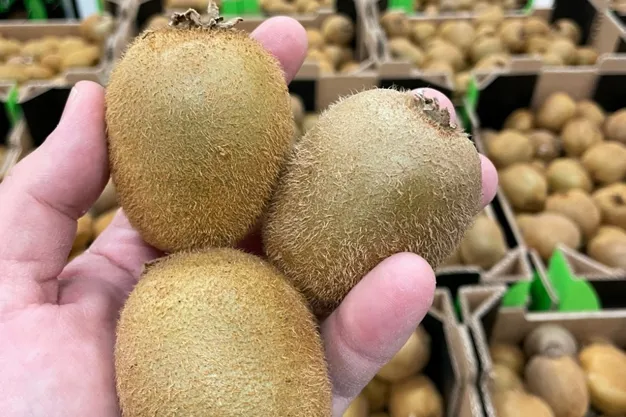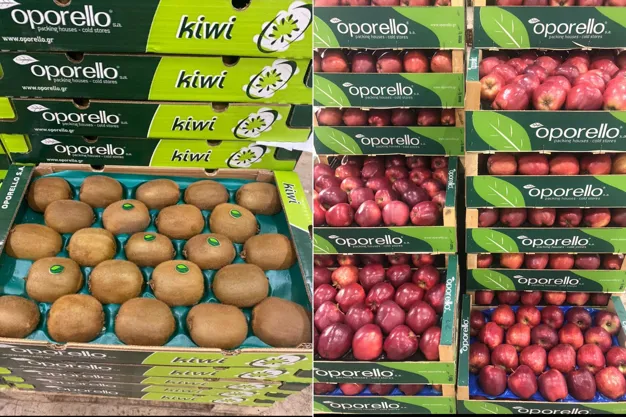The Greek kiwi season started off great, with only one problem during the harvest, says Ioannis Lamproulis of Greek fresh produce exporter Oporello: "This year, the kiwi season started with high expectations, due to high demand from the beginning. Harvesting time went smoothly, with only one single issue; the lack of workers during harvesting time in some regions. In general, all kiwifruits were harvested on time with a total of around 30 to 40 per cent less harvested quantities compared to last year's harvest. Oporello managed to achieve last year's harvested quantities of around 4.5 thousand tons of Hayward kiwis and 500 tons of the Greek variety Tsehelides. Up to this point about 80 per cent of our kiwis has already been packed and sold, which means that our selling period will last until the end of April."
Although demand has been good throughout, this isn't really reflecting in the prices for Greek kiwis, Lamproulis explains. "The current demand is strong, but prices in general are not following along with the market's situation. We're asking for higher prices, as purchasing prices at the field were approximately three times higher than they were last year. However, the European, USA, Canadian and Asian markets don't seem to be able to follow up with our offers. Iranian kiwis have had a big impact on the Indian market and eventually the Chilean ones will affect the markets of USA and Canada faster."

Lamproulis states that there were some issues with the weather during cultivation, leading to lower volumes of the kiwis: "This season, we had some unfortunate incidents of flooding in the territory of Thessaly during September, which affected the kiwi cultivation in some regions. Also, the shorter winter seems to have affected the production and eventually we received less quantities of fruits from our orchards. All in all, the season is coming to an end soon. We already have been planning the new kiwi season, we're waiting to see what the challenges of the 2024/2025 season will be."
Looking ahead to the future, Oporello is building new cooling chambers, which will allow them to store kiwis in a controlled atmosphere. More investments for other products are expected as well, Lamproulis says. "Until the summer of 2024, we'll be in the process of finishing an investment on new cooling chambers, which will allow us to keep strong and healthy kiwis in a controlled atmosphere in our region. We're in discussions with a global supplier of fresh fruits, which intends to invest in the Greek market. This isn't only on the kiwis but also on apples, cherries and stone fruits. Greece is becoming more popular for the good quality of the produce. And businesses are more modern in the sense that they adopt new techniques and follow models that can work globally. New markets for our produce welcome our products and feedback is positive in general. This gives us the power and strength to invest more in this business."

With the kiwi season almost over, Oporello will focus on different products to export, and will even import several fruits to meet the demand of tourists in Greece: "We are at the dawn of the kiwi season for this year, we will end our year supplying fresh apples, pears and by May we will be waiting for the new crops of cherries and stone fruits to start. Greece will also need imported fruits this summer such as oranges, lemons and apples and so on, in order to supply the huge demand that will arise from the arrival of tourists on the Greek islands. We are here to fulfil these needs and close the season in September, while planning for the new one," Lamproulis concludes.
For more information:
Ioannis Lamproulis
Oporello
Tel: +302410972700
Email: Lamproulisi@Lamproulis.gr
www.oporello.gr
